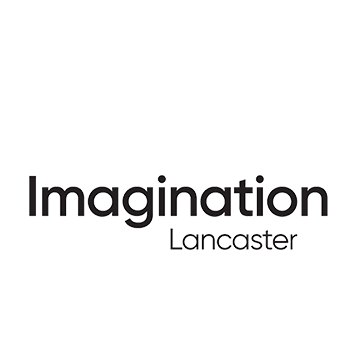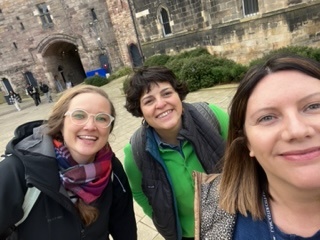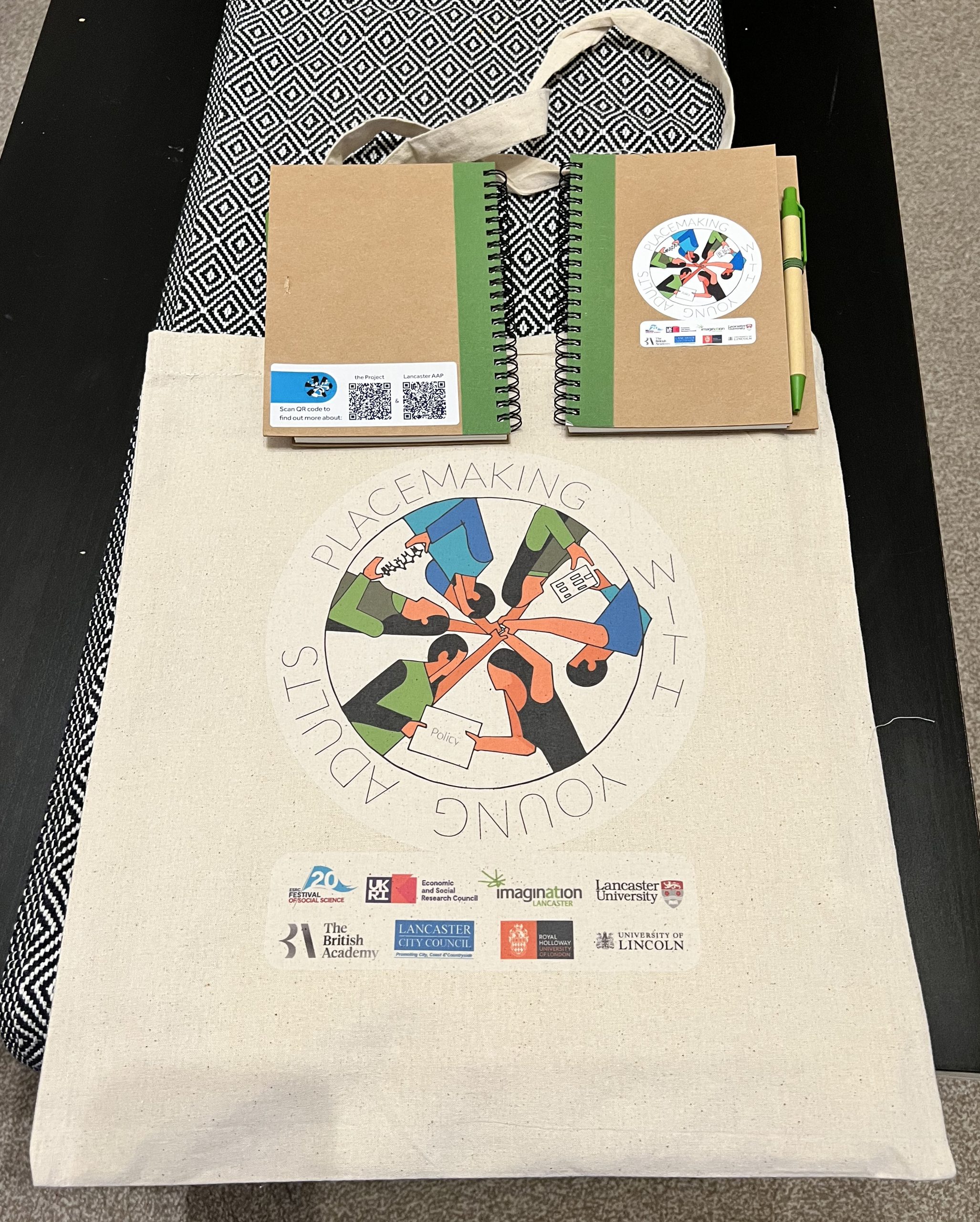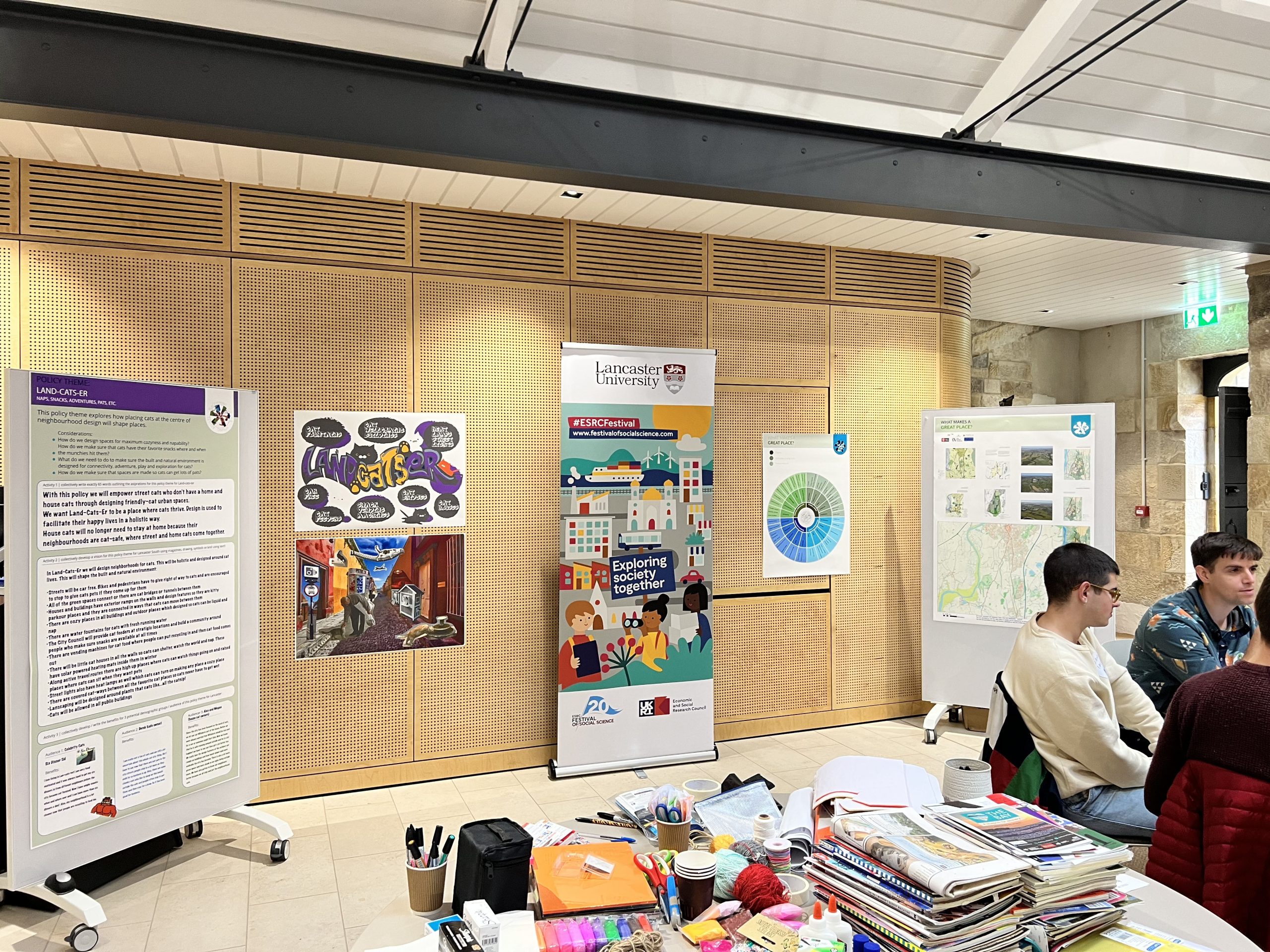The final workshop was held at Lancaster Castle, incorporated into the ESRC Festival of Social Science 2023 programme, and brought together 46 participants, 7 policymakers from Lancaster City Council and Lancaster County Council, 4 academics, and 35 young adults.
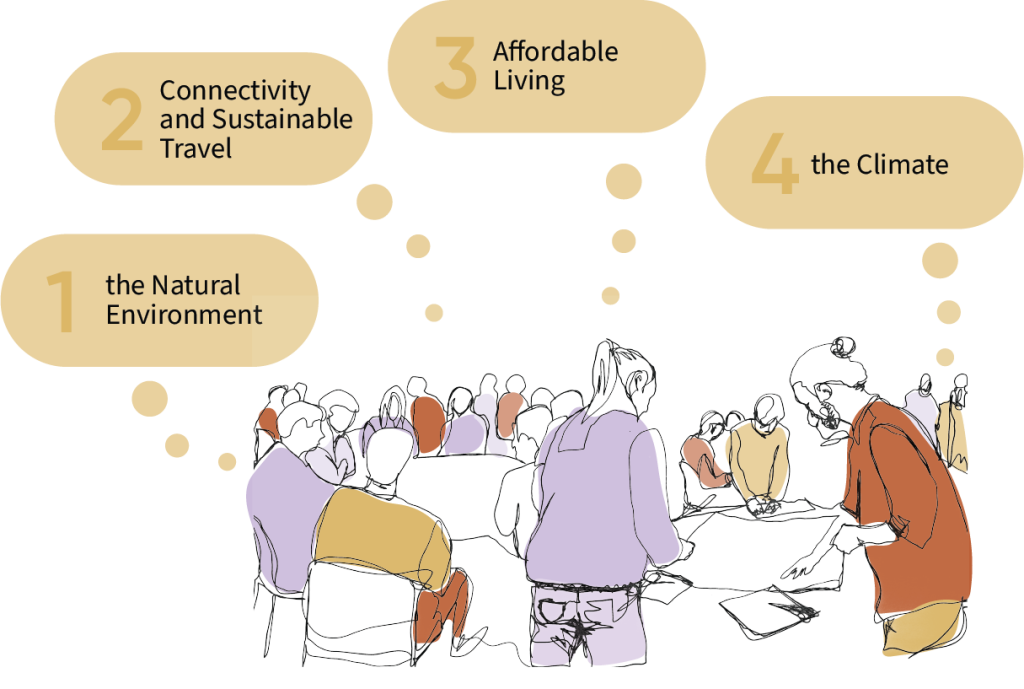
As a result of the preceding workshop, the Lancaster City Council team analysed the proposals and formulated four policy themes. The first theme centred around ‘the natural environment’, focused on areas such as green spaces, rivers, canals, and streams. The second theme, “connectivity and sustainable travel,” endorsed ideas regarding walking, cycling, wheeling, and utilizing public transport. The third theme, “affordable living,” drew attention to concerns related to the cost of living, recreational activities, food production, and social life. Lastly, the fourth theme, “climate,” concentrated on issues such as achieving Net-Zero in new developments, implementing renewable energy strategies, and devising water management strategies. The objective was to explore these four main policy themes identified:
Also, it aimed to explore the key aspirations of each policy theme, co-develop a vision, and reflect on the co-benefits that each policy theme could generate. This facilitated in-depth discussions.

To effectively engage young adults and policymakers, the workshop was designed to involve them in four different groups, each dedicated to one policy theme. Participants in small groups crafted a concise statement encapsulating these aspirations, which was then shared with the other participants. This approach allowed individuals to delve into themes beyond their primary focus, enabling the research team to gather diverse ideas from various perspectives.
Next activity involved transforming these aspirations into a visual representation in the form of a collage, vision, or future context scenario. Participants were provided with scissors, glue, magazines, and cardboard to collaboratively create a synthetic vision for each policy theme. This activity served as a platform for discussing the challenges and issues surrounding the respective policy theme. The final activity centred around generating profiles of three distinct audience groups that could directly or indirectly benefit from the proposed policies.
